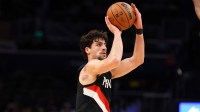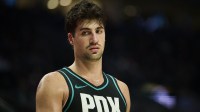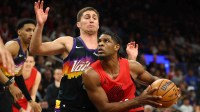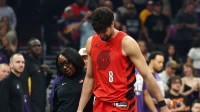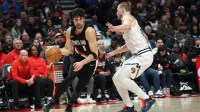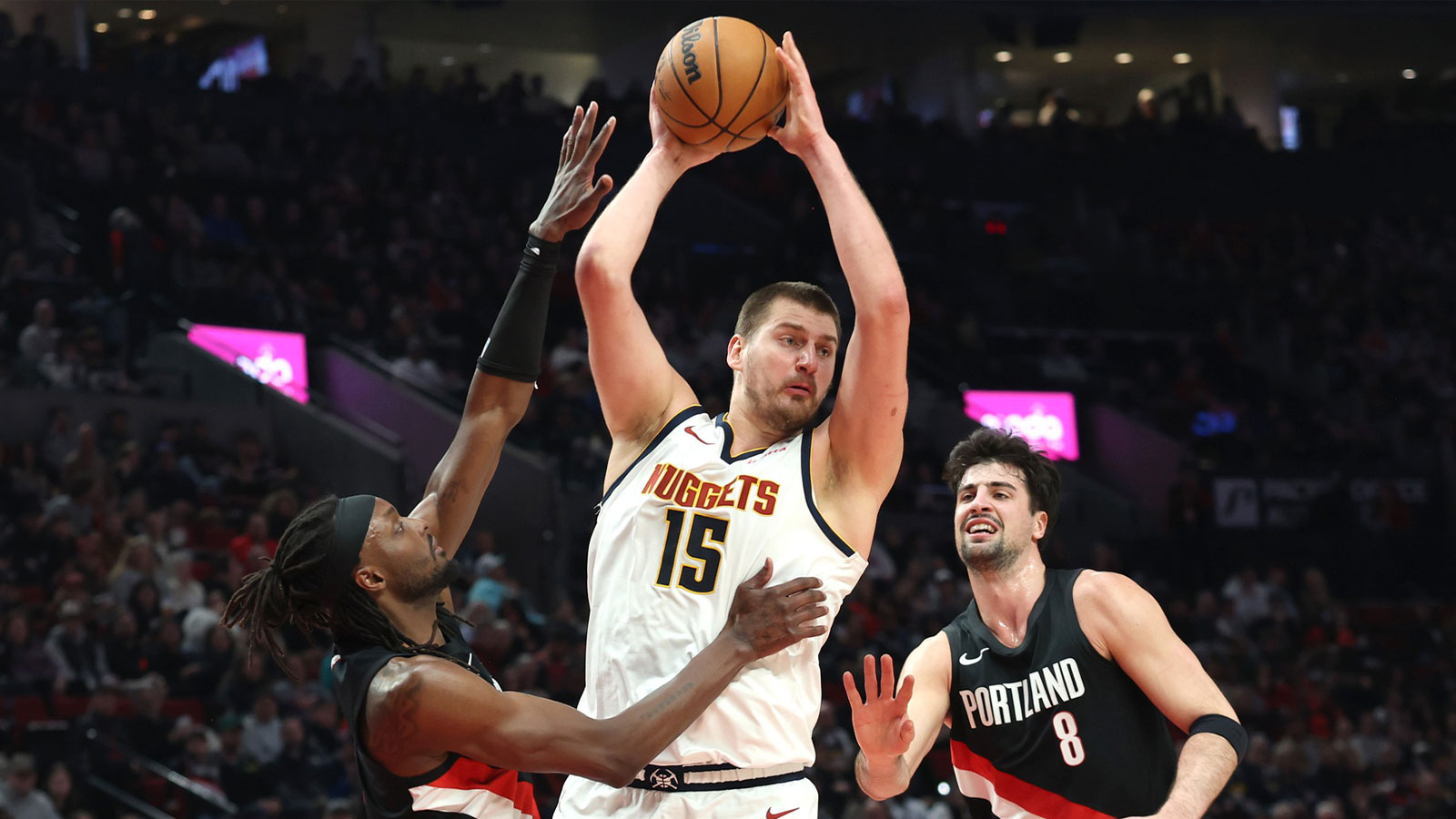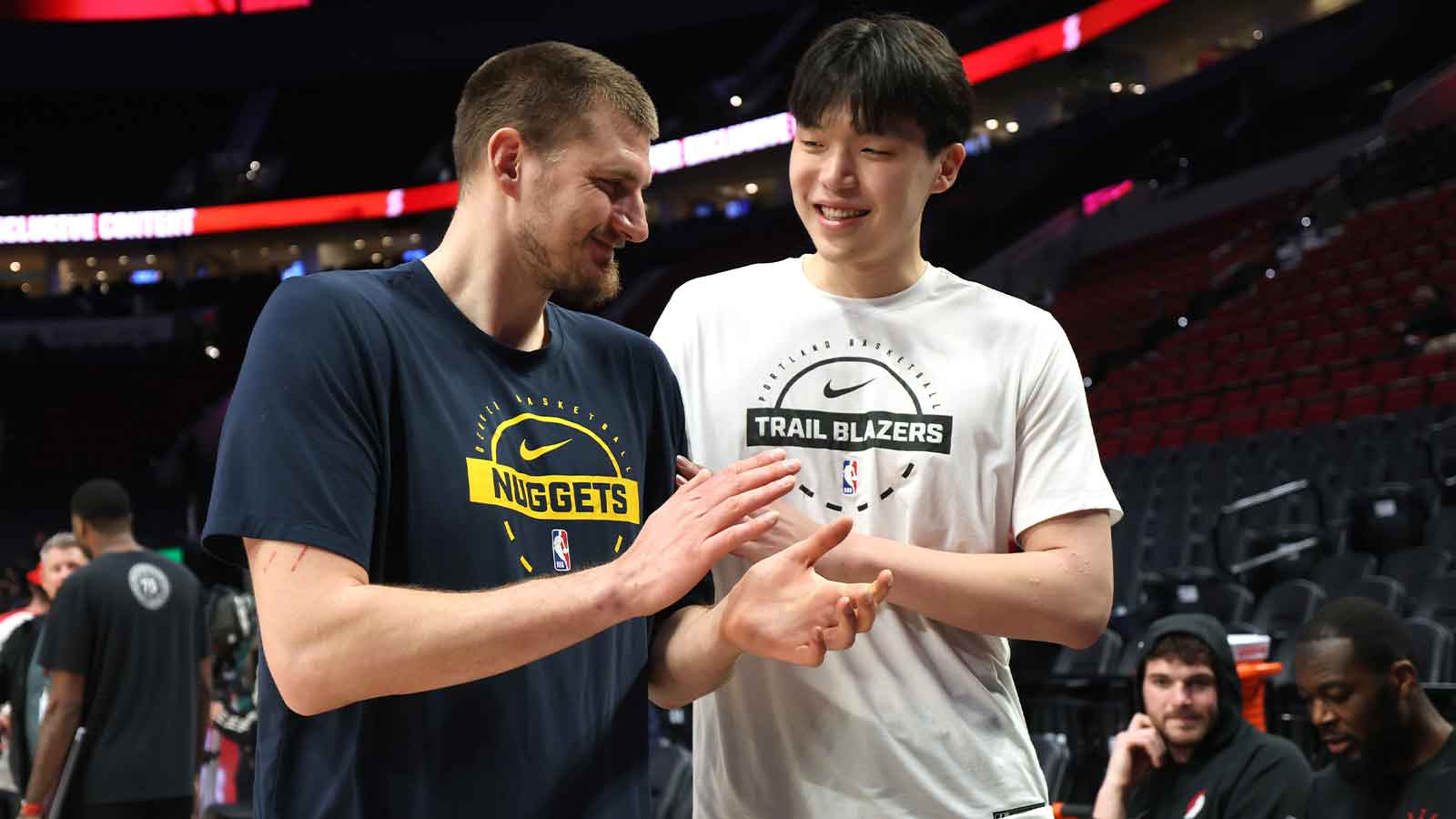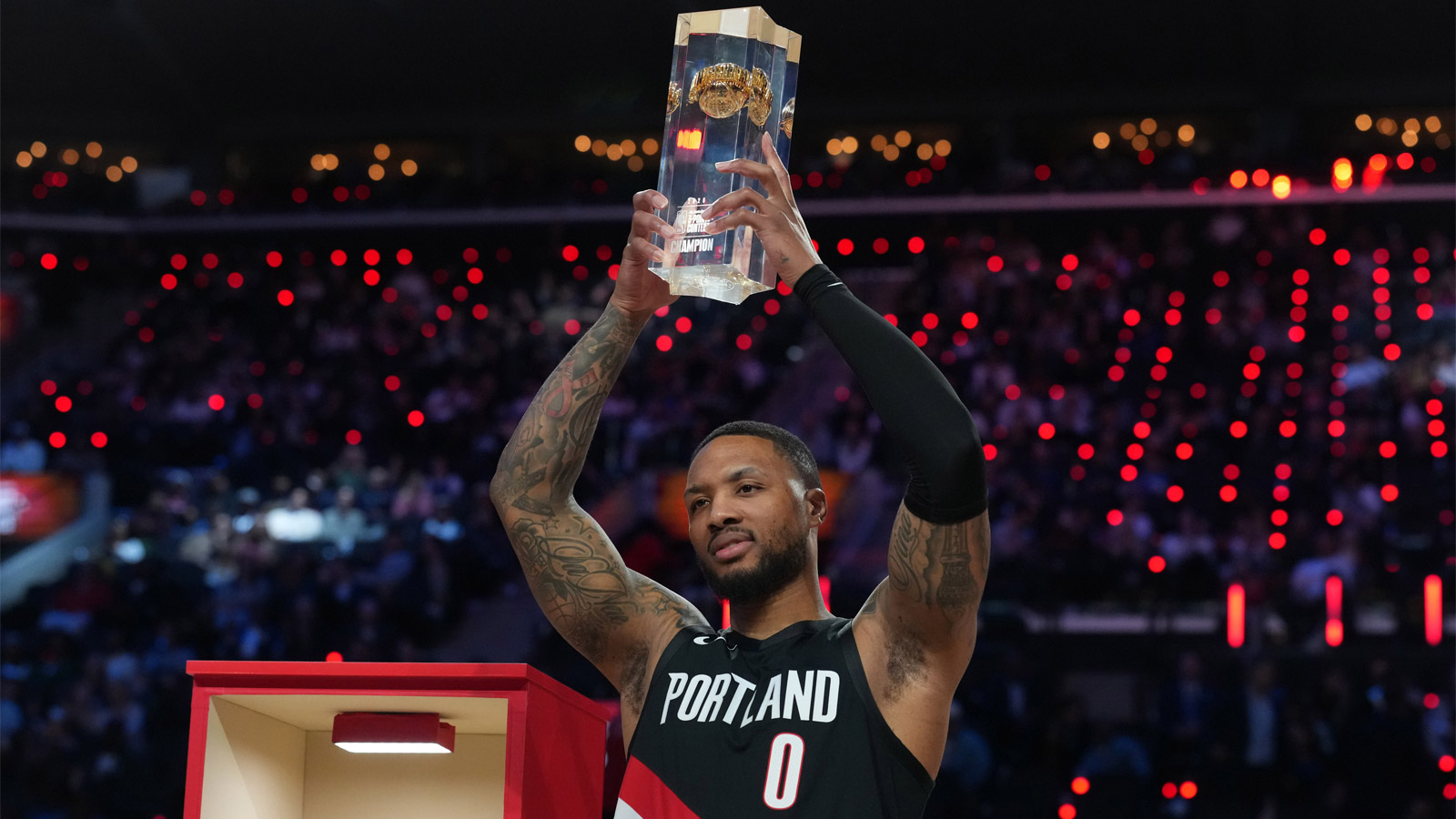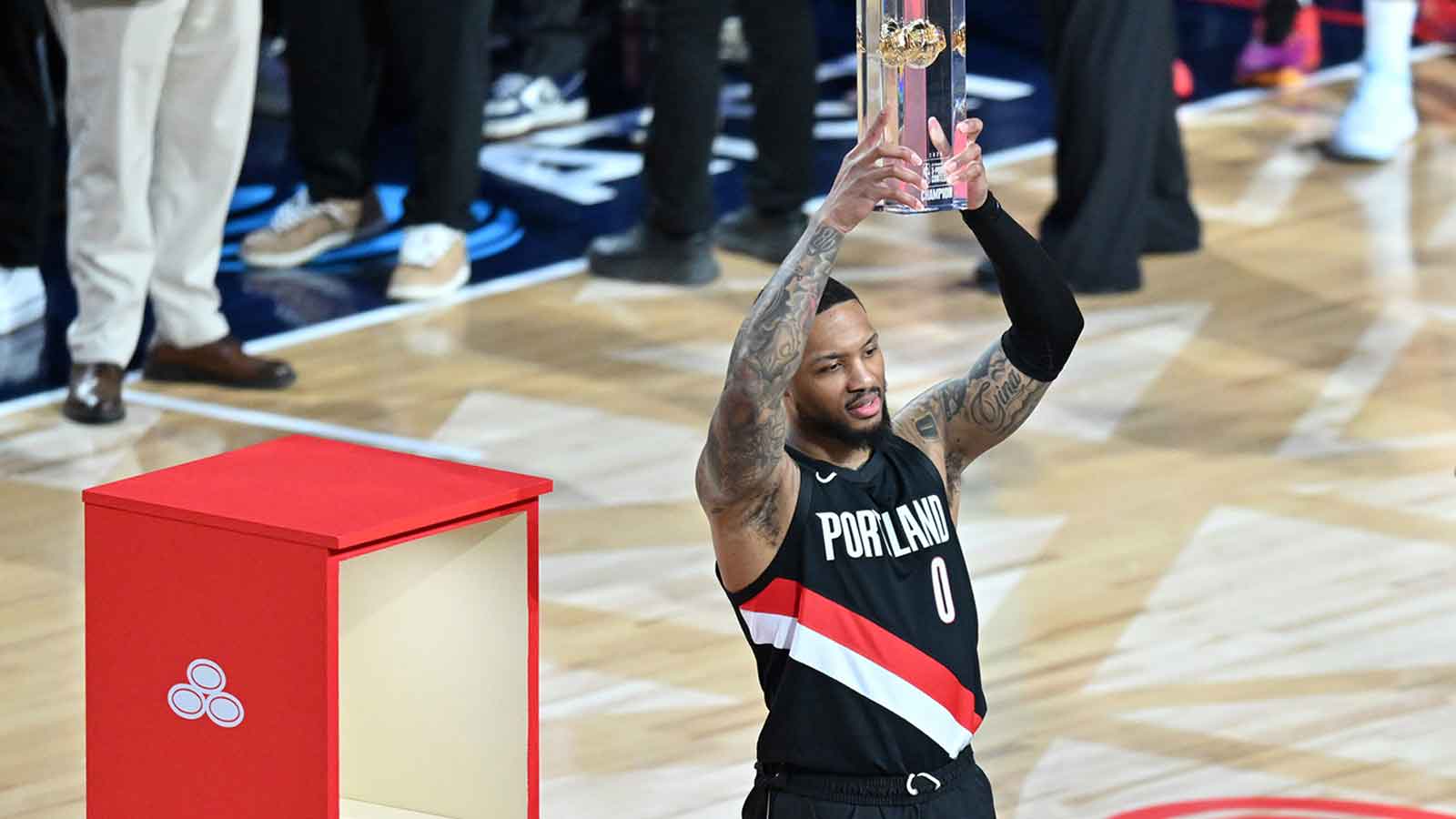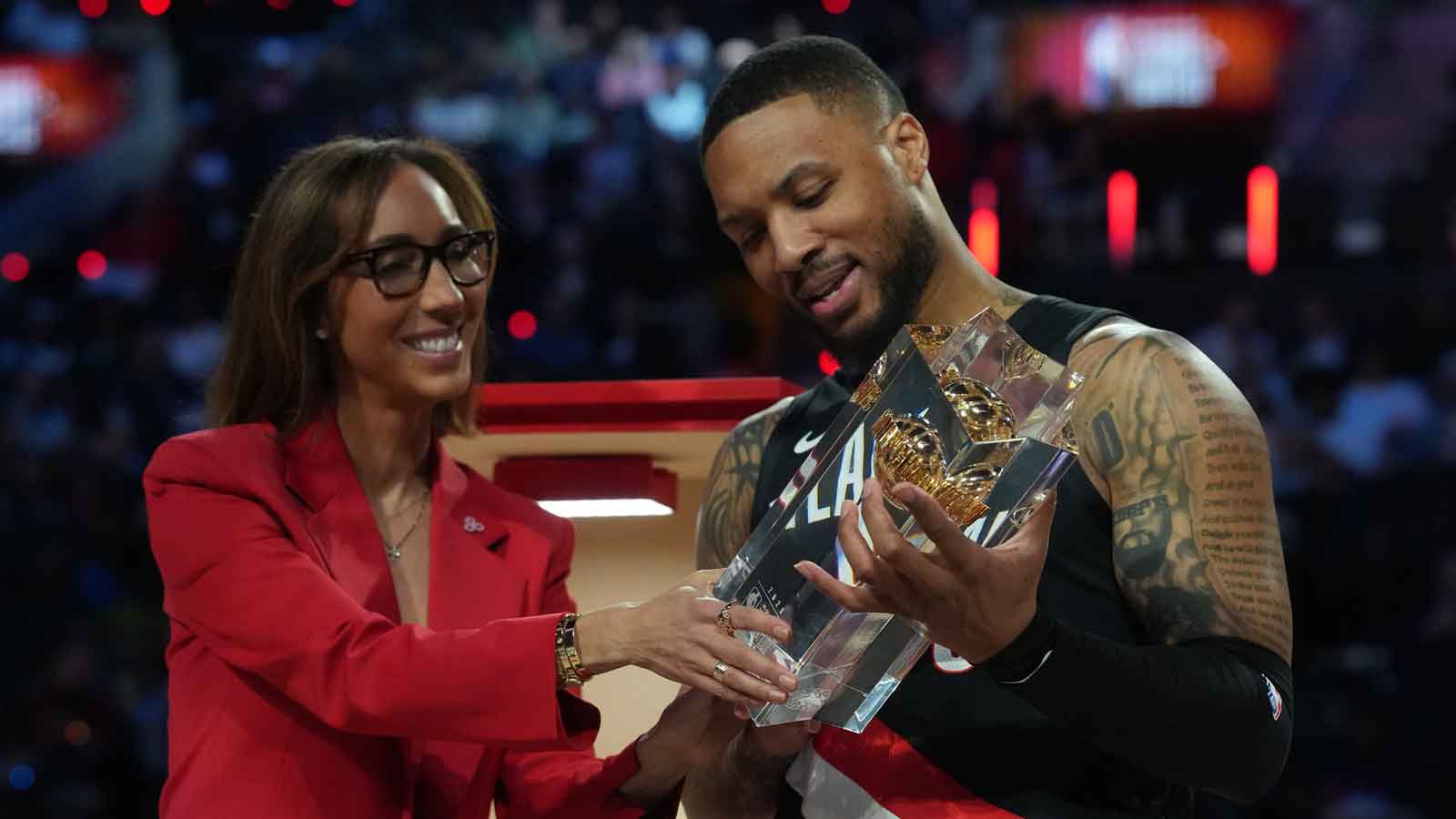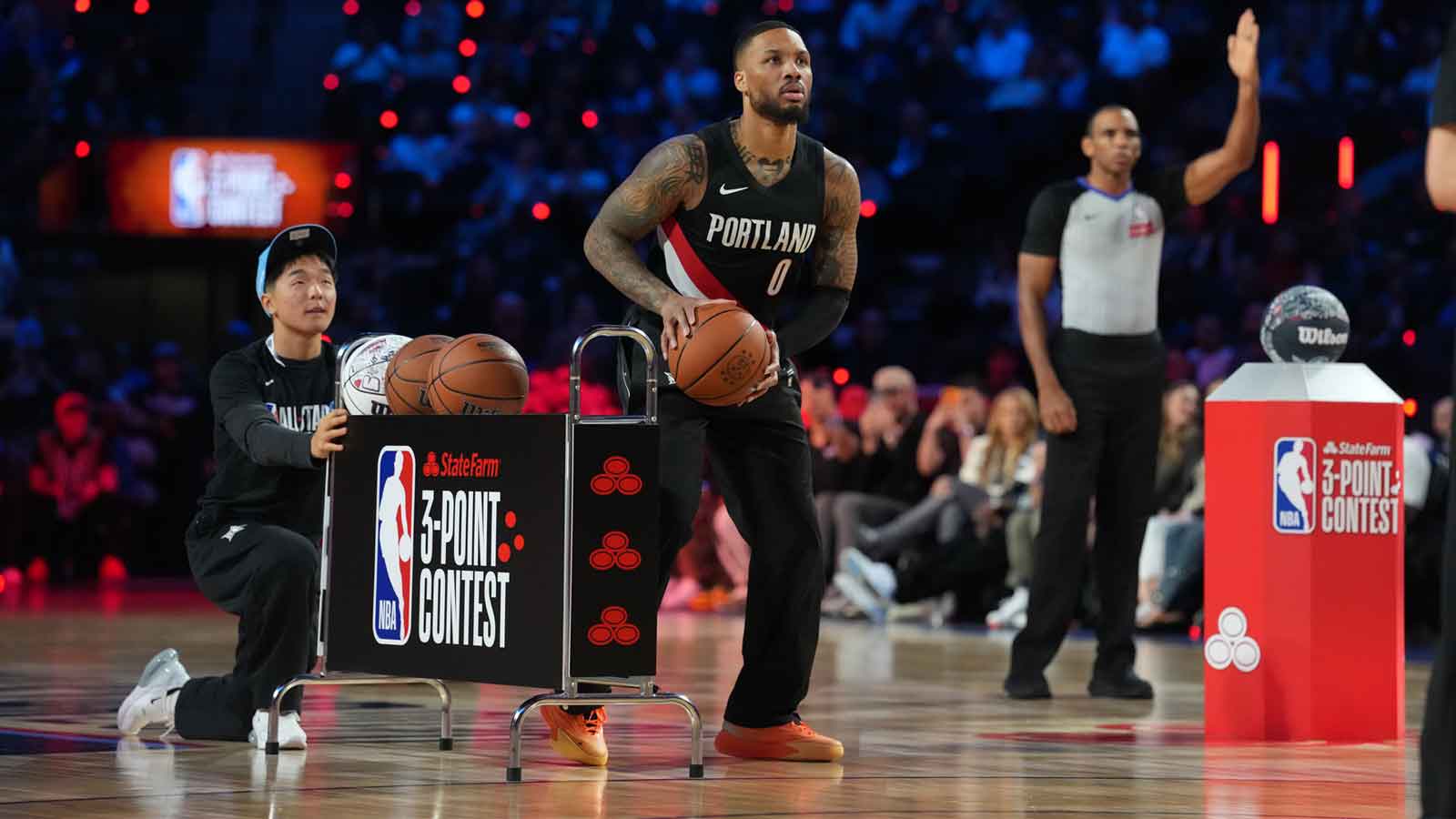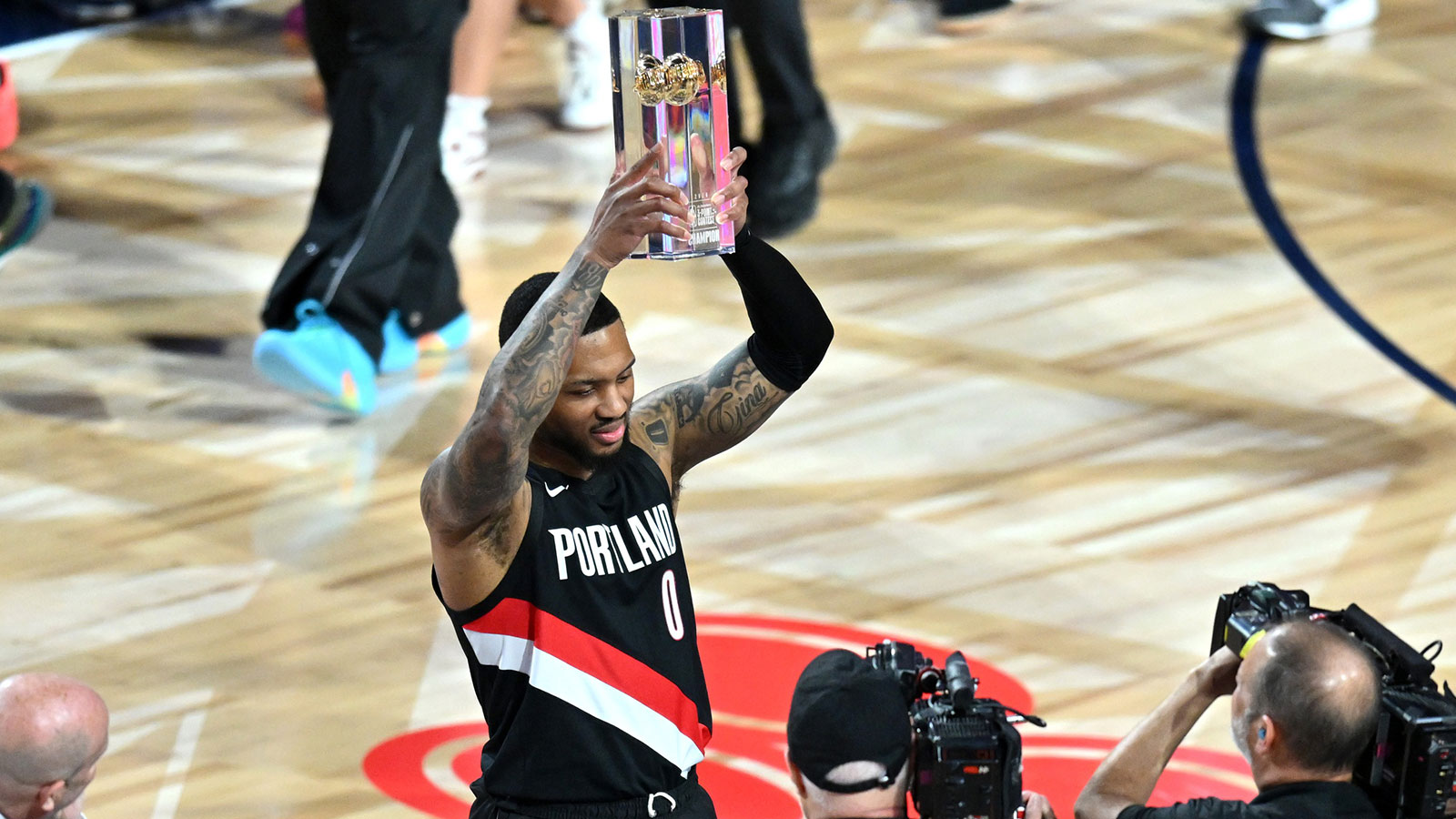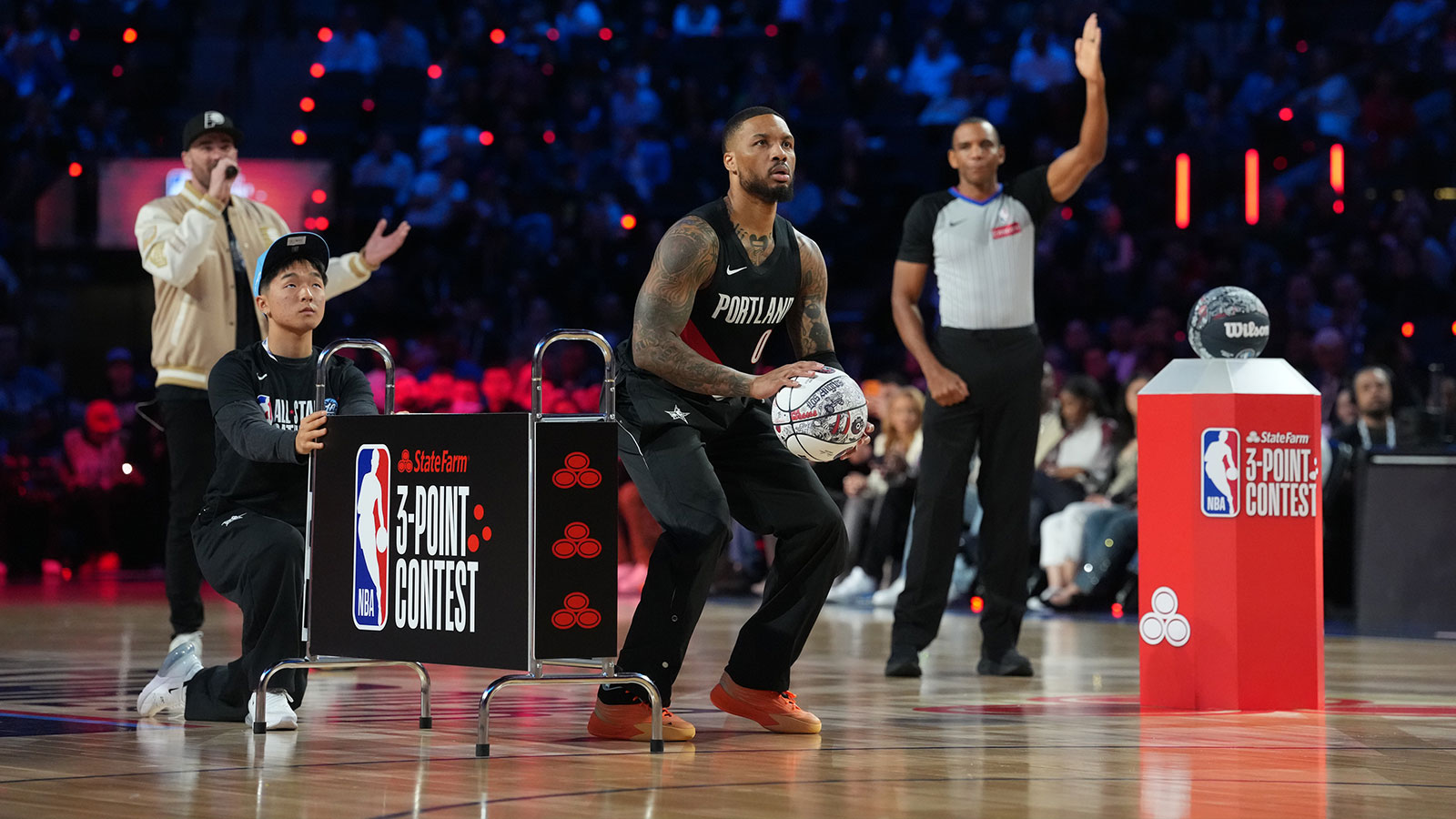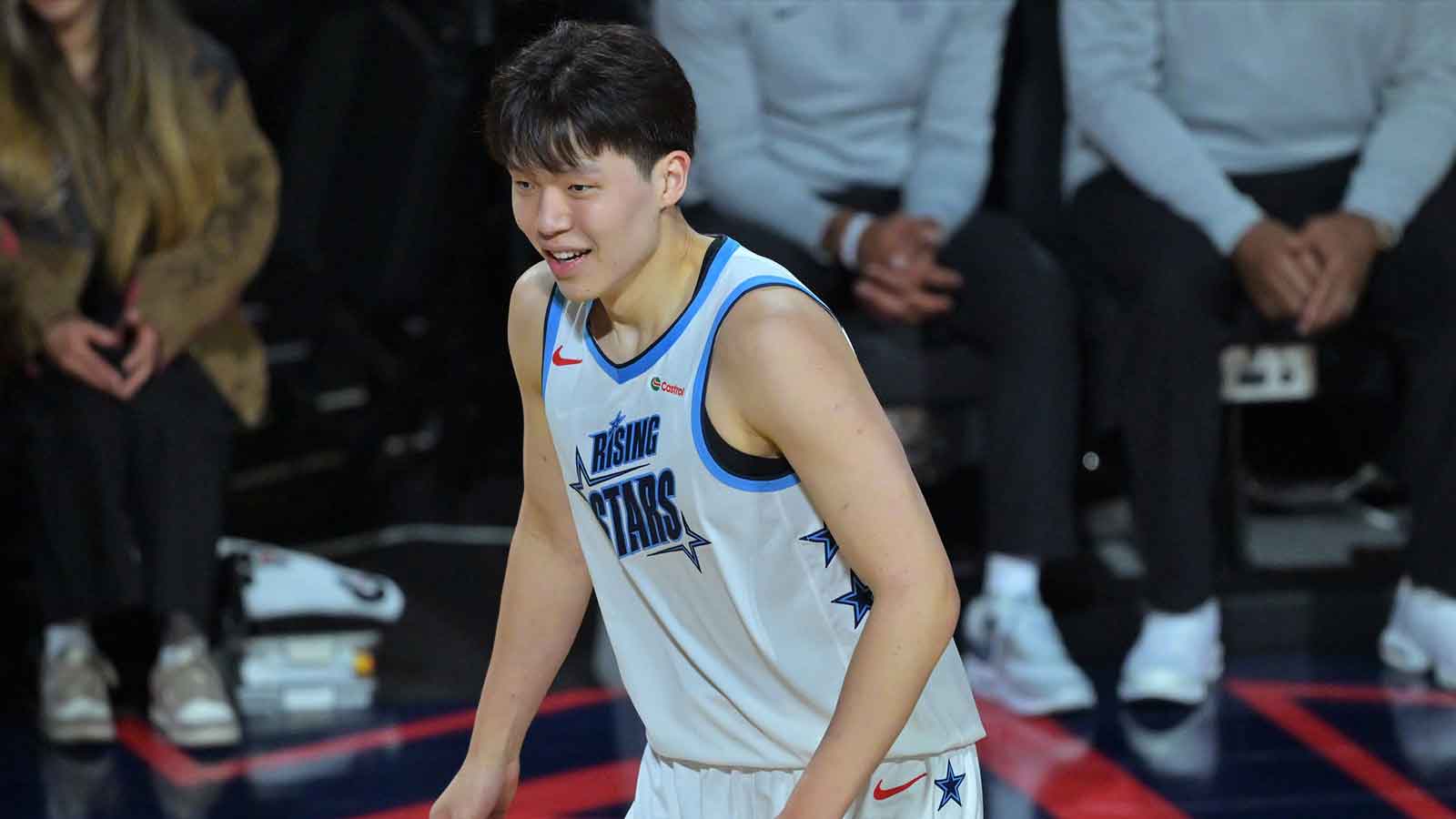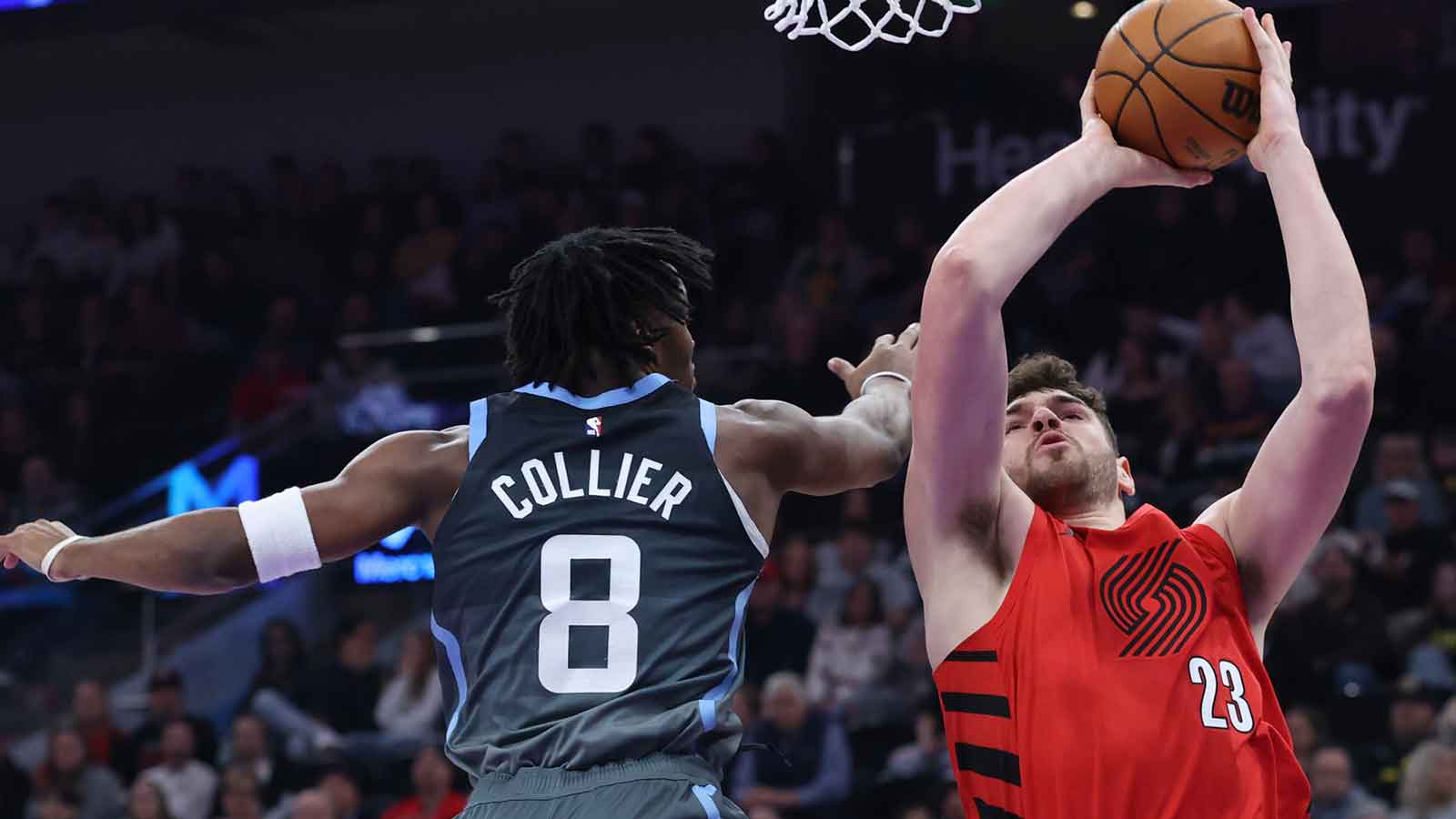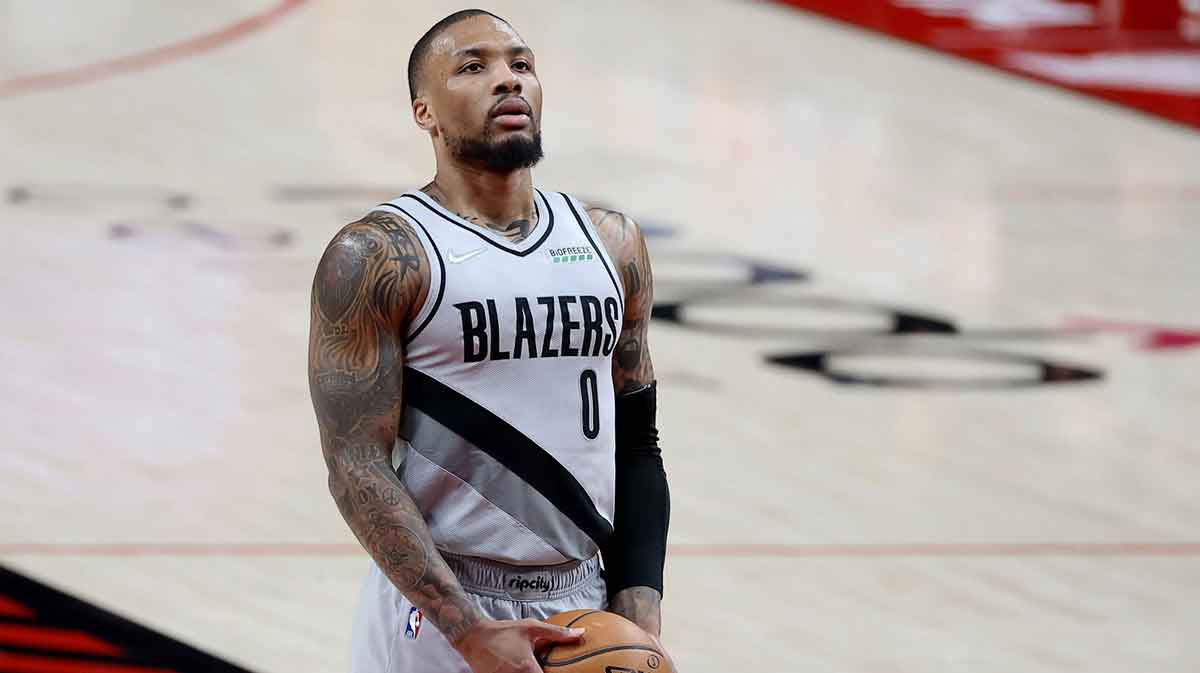The Portland Trail Blazers entered their two-game set with the Minnesota Timberwolves at Target Center one-and-a-half games back of the final spot in the Western Conference play-in tournament. Portland would be underdogs no matter what with Damian Lillard and Jusuf Nurkic sidelined, but at least Minnesota's absences—Anthony Edwards and Patrick Beverly missed Saturday's game—ensured it would have a fighting chance.
Indeed, the Blazers matched Karl-Anthony Towns and the Timberwolves shot-for-shot until midway through the fourth quarter, when their offense bogged down as Anfernee Simons' jumper left him. A two-point deficit with six minutes left became another double-digit Portland loss by the time the final buzzer sounded, but that lopsided result didn't have to seem as inevitable as it ended up proving.
Portland dressed only eight players against Minnesota, beset by injuries to a quartet of likely contributors to next season's team and a non-COVID illness plaguing both Greg Brown III and Elijah Hughes. Also absent for the Blazers was Josh Hart, but not because he was hurting or sick. He was a healthy scratch for the first leg in Minneapolis, listed as out due to rest on the official injury report despite Portland having last played three days prior.
You don't have to be a die-hard Blazers fan or NBA cynic to know the underlying justification behind sitting Hart. Portland unofficially embarked on tank mode at the trade deadline last month, moving C.J. McCollum, Norman Powell, Robert Covington and Larry Nance Jr. in a series of cost-cutting trades that both interim general manager Joe Cronin and Chauncey Billups immediately admitted prioritized long-term flexibility over short-term performance.
The newly-acquired Hart and Justise Winslow didn't get the message, though, spearheading the Blazers' subsequent 4-0 surge into the All-Star break with hustle, two-way versatility and a commitment to playing the way Billups had long envisioned. Suddenly, Portland had the identity it tried and failed so hard to establish during training camp and over the first four months of 2021-22.
Josh Hart's ability to guard up+down the lineup and scale into multiple roles offensively has been huge for POR. Exactly what Billups wants from wings #RipCity
NYK seeking switch for Randle here. POR obliges, and Hart absorbs two hard bumps before forcing Dirk fade. So strong. pic.twitter.com/LTZzmluW8A
— Jack Winter (@ArmstrongWinter) February 16, 2022
The healthy Blazers won't level up in the Western Conference next season unless they continue cementing that ethos. Not even a month removed from it, Portland's head-turning pre-All-Star play is a distant memory now. The team has lost five games in a row, four by 30 points or more, and its increasingly brazen efforts to avoid winning games makes even just a single victory before the regular season ends difficult to fathom.
Odds are firmly against this current losing streak continuing all the way to the season finale against the Utah Jazz on April 10th, of course. But Rip City has finally come to the collective understanding that losses are more valuable to the Blazers than wins. Portland only retains its first-rounder this summer if it falls in the lottery; otherwise that pick will be headed to the Chicago Bulls, fulfilling parameters of the preseason trade for Nance.
The Blazers' path toward real contention is long and winding, marred by road blocks that seem insurmountable. They need to get much better, fast. Lillard isn't getting any younger. Portland's most realistic means of doing so no doubt involves one high lottery pick, and optimally two. The Blazers will get another first-rounder in the 2022 draft if the New Orleans Pelicans miss the playoffs and their pick doesn't land in the top-five.
Should the Blazers shut down Damian Lillard and tank for a lottery pick? 👀https://t.co/bEeSGcW2U3
— Blazers Nation (@BlazersNationCP) January 3, 2022
McCollum's presence, ironically, has made Portland's ideal scenario of possessing a pair of mid-lottery picks less likely. He's thrived as New Orleans' primary ball handler, teaming with the still-improving Brandon Ingram to lead the Pelicans on a four-game winning streak before Sunday's thrilling overtime loss to Nikola Jokic and the Denver Nuggets.
New Orleans' hopes of advancing past the play-in tournament looked naive at the trade deadline, with every opaque update on Zion Williamson's status providing less room for optimism. The new-look Pelicans have played some of their best basketball of the season since, though, poised to continue separating themselves from the San Antonio Spurs and hapless Sacramento Kings for tenth-place in the West.
Whether New Orleans breaks through the play-in tournament, should it get there, remains to be seen. But it's already clear the Pelicans have a far better chance of making the real playoffs now than they did a few weeks ago—all the more reason for Portland to continue tanking head-first.
Bringing Lillard and Nurkic back as soon as possible for a late-season playoff push would be intentionally self-defeating for the Blazers. They need at least one lottery pick to make this on-the-fly rebuild worthwhile. Portland just doesn't have a surefire source of outside upward mobility otherwise, even if the front office ultimately deems its impending lottery pick is best used in a trade.
Simons, by the way, didn't play in the Blazers' 43-point loss to Minnesota on Monday night, dealing with a thigh contusion. Hard as it was for fans to stomach the depths of a loss tied for the sixth-worst in franchise history, they can at least take some solace from knowing it served Portland's greater good.
Don't be surprised if the Blazers are led by the likes of Brandon Williams, Keon Johnson and Trendon Watford again down the stretch of the regular season, either.
Portland has by far the league's easiest remaining schedule, according to Tankathon, and needs every loss it can muster in hopes of rising as high up the lottery as possible. The opportunity to draft Chet Holmgren or Jabari Smith Jr., for instance, could change everything for the Blazers, even before accounting for the prospect of another lottery pick from New Orleans.
Portland finally made moves at the trade deadline that should've happened years ago. Losing was always a necessary next step in that rebuilding process, and backwards as it appears on the surface, the Blazers actually deserve credit for enduring the uncomfortable real-time consequences of tanking so outwardly.



